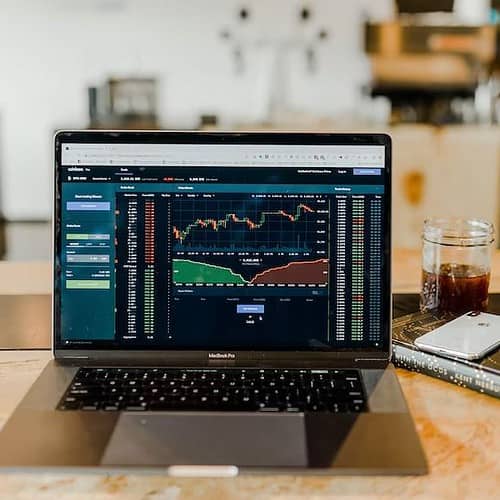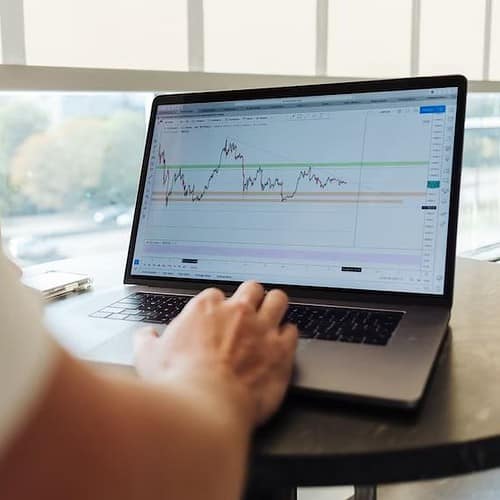CFD trading South Africa refers to the practice of trading Contracts for Difference (CFDs) in the financial markets within the country. CFDs are derivative instruments that allow traders to speculate on the price movements of various financial assets without owning the underlying assets. In South Africa, CFD trading has gained popularity among investors and traders due to its flexibility and accessibility. It offers the opportunity to trade a wide range of financial instruments, including stocks, indices, commodities, currencies, and cryptocurrencies. In this article, you will learn more about CFD trading South Africa.
What Is CFD Trading South Africa?
CFD trading in South Africa refers to the practice of trading Contracts for Difference (CFDs) in the financial markets within the country. CFDs are derivative instruments that allow traders to speculate on the price movements of various financial assets without actually owning the underlying assets. In South Africa, CFD trading has gained popularity among investors and traders as it provides an opportunity to profit from both rising and falling markets.
When engaging in CFD trading, individuals enter into a contract with a broker to exchange the difference in the price of an underlying asset between the opening and closing of the contract. This means that traders can profit from the price movement of an asset without owning it physically. CFDs are available on a wide range of assets, including stocks, indices, commodities, currencies, and cryptocurrencies.

CFD trading South Africa offers several advantages. Firstly, it allows traders to access various markets and instruments, both domestic and international, through a single trading account. This provides diversification opportunities and the ability to take advantage of different market conditions. Additionally, CFDs often offer leverage, which means traders can control larger positions with a smaller amount of capital, amplifying potential profits (as well as losses). However, it is important to note that leverage also increases risk, and traders should exercise caution and employ risk management strategies.
In South Africa, CFD trading is regulated by the Financial Sector Conduct Authority (FSCA). The FSCA oversees the activities of brokers and ensures compliance with relevant regulations to protect investors’ interests. It is important for traders to choose regulated brokers who adhere to the regulatory framework and provide a secure trading environment.
To engage in CFD trading South Africa, individuals typically need to open an account with a reputable broker that offers CFD trading services. These brokers provide trading platforms, access to real-time market data, charting tools, and other features to facilitate trading activities. Traders can analyze the markets, execute trades, and monitor their positions using these platforms.
Overall, CFD trading in South Africa presents an opportunity for individuals to participate in the financial markets and potentially profit from price movements without owning the underlying assets. However, it is essential to acquire a good understanding of CFDs, the associated risks, and employ proper risk management strategies before engaging in this form of trading.
Best CFD Brokers in South Africa
List of the best CFD Brokers in South Africa:
IG Markets
IG Markets is a globally recognized broker with a strong presence in South Africa. They offer a wide range of CFDs on various assets, including stocks, indices, commodities, and cryptocurrencies. IG Markets is known for its user-friendly trading platform, competitive spreads, and extensive educational resources.
Plus500
Plus500 is a popular CFD broker that has gained popularity in South Africa for its user-friendly platform and wide range of tradable instruments. They offer CFDs on stocks, indices, commodities, forex, and cryptocurrencies. Plus500 is known for its competitive spreads, no commission fees, and a comprehensive mobile trading app.
AvaTrade
AvaTrade is a regulated broker that provides CFD trading services in South Africa. They offer a wide range of CFDs, including stocks, indices, commodities, and cryptocurrencies. AvaTrade stands out for its intuitive trading platforms, educational resources, and customer support.
XM
XM is a well-established broker that offers CFD trading services to South African traders. They provide a diverse range of CFDs, including forex, commodities, indices, stocks, and cryptocurrencies. XM is known for its competitive trading conditions, multiple account types, and excellent customer service.
FXTM
FXTM, also known as ForexTime, is a reputable broker offering CFD trading services in South Africa. They provide a range of CFDs on forex, commodities, indices, and shares. FXTM is recognized for its user-friendly platforms, educational materials, and various account types to cater to different trading needs.
EasyMarkets
EasyMarkets is a well-regulated broker that offers CFD trading services to South African traders. They provide CFDs on a wide range of assets, including forex, indices, commodities, and cryptocurrencies. EasyMarkets is known for its user-friendly platforms, fixed spreads, and risk management tools.

How Do I Choose CFD Trading Platform South Africa?
When choosing a CFD trading platform in South Africa, there are several key factors to consider. Here are some important aspects to evaluate:
- Regulation and Security: Ensure that the trading platform is regulated by a reputable authority, such as the Financial Sector Conduct Authority (FSCA) in South Africa or other recognized international regulators. Regulation helps ensure the safety of your funds and the fair operation of the platform.
- Asset Selection: Evaluate the range of CFDs available on the platform. Look for a diverse selection of assets, including stocks, indices, commodities, currencies, and cryptocurrencies. A broader range of options allows for better diversification and the ability to trade different markets.
- Trading Tools and Features: Consider the trading tools and features offered by the platform. Look for features like real-time market data, charting tools, technical indicators, risk management tools, and order types. These tools can enhance your trading experience and help you make informed trading decisions.
- User-Friendly Interface: Choose a platform that has an intuitive and user-friendly interface. The platform should be easy to navigate, with clear and accessible information about your account, positions, and available trading options. A user-friendly platform can make your trading experience smoother and more efficient.
- Trading Costs and Fees: Evaluate the costs and fees associated with trading on the platform. Consider factors such as spreads, commissions, overnight financing charges, and withdrawal fees. Compare these costs across different platforms to find one that offers competitive and transparent pricing.
- Customer Support: Check the quality and availability of customer support services provided by the platform. Look for platforms that offer responsive customer support through multiple channels, such as live chat, email, or phone. Prompt and helpful customer support can be crucial if you encounter any issues or have questions during your trading journey.
- Education and Research Materials: Assess the availability of educational resources and research materials offered by the platform. Look for platforms that provide educational articles, tutorials, webinars, and market analysis to help you improve your trading skills and stay updated with market trends.
- Demo Account: Consider whether the platform offers a demo account. A demo account allows you to practice trading with virtual funds without risking real money. It’s a valuable tool for beginners to familiarize themselves with the platform’s features and test trading strategies before committing real funds.
- Mobile Trading: If you prefer trading on the go, check if the platform offers a mobile trading app. A mobile app can provide convenience and flexibility, allowing you to monitor and trade your positions from anywhere at any time.
FAQs
Here are some frequently asked questions (FAQs) related to CFD trading in South Africa:
What is CFD trading?
CFD trading, or Contract for Difference trading, is a form of derivative trading where traders speculate on the price movements of various financial instruments without owning the underlying assets. CFDs allow traders to profit from both rising and falling markets.
Is CFD trading legal in South Africa?
Yes, CFD trading is legal in South Africa. However, it is important to trade with regulated brokers authorized by the Financial Sector Conduct Authority (FSCA) to ensure a safe and regulated trading environment.
What are the advantages of CFD trading?
Some advantages of CFD trading include the ability to trade on both rising and falling markets, access to a wide range of financial instruments, leverage to amplify trading positions, and the flexibility to trade in various markets through a single account.
What are the risks of CFD trading?
CFD trading involves risks, including the potential for losses. Leverage can amplify both profits and losses, so it is crucial to implement risk management strategies and have a clear understanding of the risks associated with CFD trading.
How do I choose a CFD broker in South Africa?
When choosing a CFD broker, consider factors such as regulation, available assets, trading platforms and tools, fees and costs, customer support, educational resources, and the availability of a demo account. It’s important to research and compare different brokers to find one that suits your trading needs.
How much capital do I need to start CFD trading?
The capital required to start CFD trading varies depending on the broker and your trading strategy. CFDs often offer leverage, allowing traders to control larger positions with a smaller amount of capital. However, it’s important to only trade with funds you can afford to lose and to carefully manage your risk.
Can I trade CFDs on international markets from South Africa?
Yes, many CFD brokers in South Africa offer access to international markets, allowing you to trade CFDs on various assets globally. This provides opportunities to diversify your portfolio and trade in different markets.
How do I manage the risks in CFD trading?
Risk management is crucial in CFD trading. Some risk management techniques include setting stop-loss orders to limit potential losses, diversifying your trades, using appropriate leverage, and having a trading plan with clear entry and exit strategies.
Conclusion
In conclusion, CFD trading in South Africa offers individuals the opportunity to participate in the financial markets and potentially profit from the price movements of various assets without owning them. With a wide range of financial instruments available and regulated brokers offering advanced trading platforms, traders in South Africa can engage in CFD trading with ease.
By carefully selecting a reputable and regulated CFD broker, traders can ensure a secure and transparent trading environment. Factors such as regulation, available assets, trading tools, fees, customer support, and educational resources should be considered when choosing a CFD trading platform.
It is important for traders to understand the risks involved in CFD trading and implement effective risk management strategies. Leverage can amplify both profits and losses, so it is essential to trade responsibly and only use funds that you can afford to lose.
Additionally, staying updated with market trends, utilizing educational resources, and continuously improving trading skills can contribute to successful CFD trading in South Africa.
Image Courtesy: Unsplash
